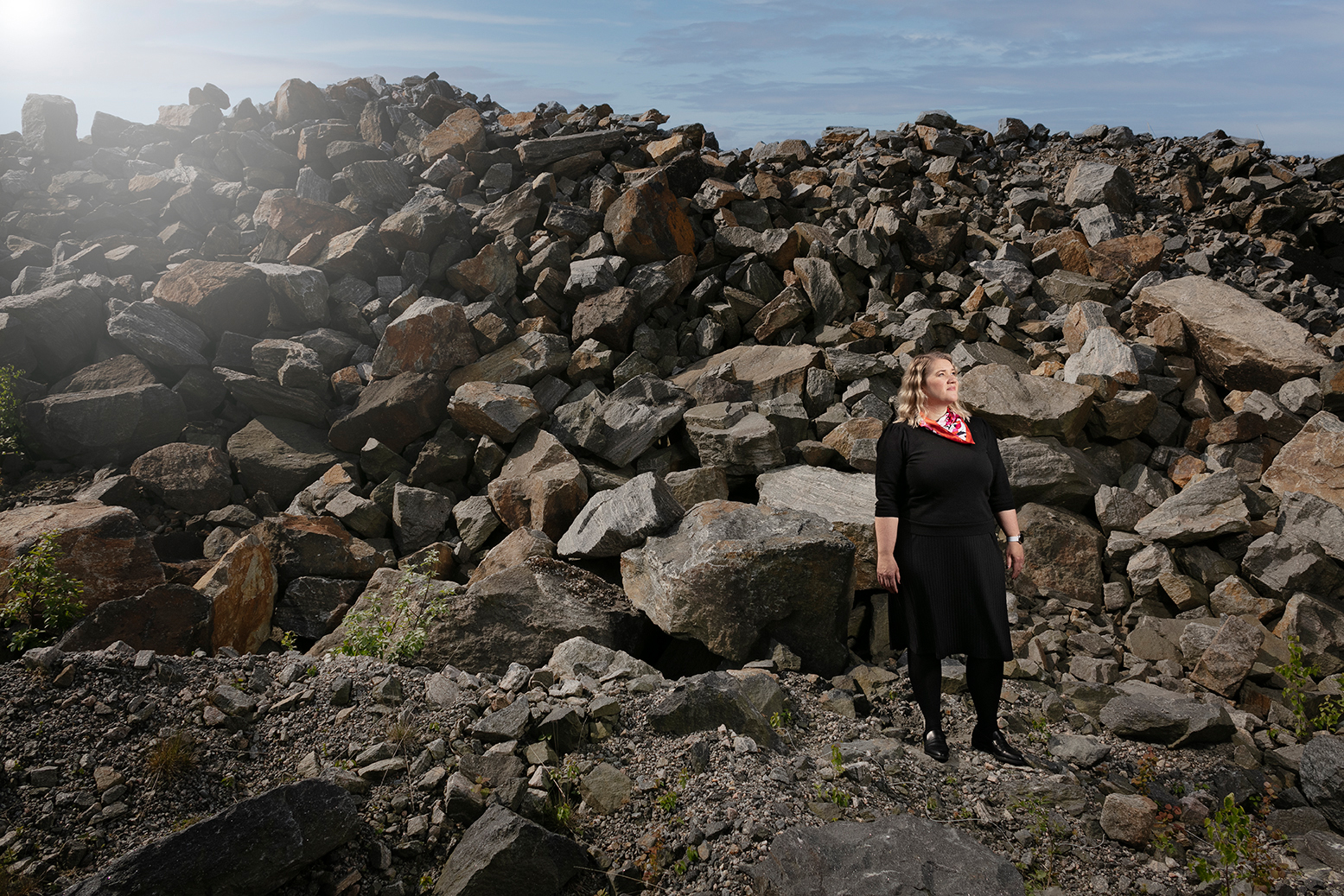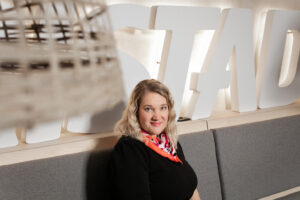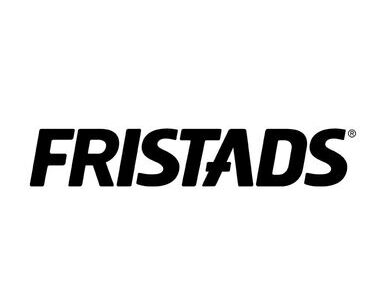Fristad

Lisa Rosengren has led Fristad’s R&D operations for material development for fifteen years. Together with CEO Anders Hülse, they early identified the importance and value of ensuring sustainability throughout the entire raw material value chain. Today, she leads a team of seven people conducting life cycle analyses with the help of SimaPro on raw materials, and they greenlight textiles, buttons, and zippers that can be used in the company’s products. The company also has its own laboratory to test the fabrics and accessories, among other things, under various weather conditions.
Ten years ago, the sustainable fibers were not where they are today; they did not meet the mark. For workwear, the challenge is durability; they need to protect but also endure heavy wear. This was the starting point for Lisa Rosengren’s work in developing Environmental Product Declarations (EPDs) for textiles.
“Ten years ago, there was a lot of greenwashing about fabrics, but nothing measurable for the sustainability of textiles. I asked the question of how we can know if a product is actually sustainable – what impact does it have on the environment?” Lisa Rosengren explains.
Sustainability challenges exist in the textile production phase. It is therefore important to measure the environmental impact from the time the fiber is created until the garment is in our warehouse. Lisa Rosengren then contacted RISE and Sandra Roos, who was an expert in life cycle analysis of textiles. Roos suggested a life cycle analysis for the entire garment. But at that time, there were no Environmental Product Declarations (EPDs) for clothing, and thus it was not possible to compare “apples to apples”. Together with Sandra Roos, a strategic decision was made in 2017 to create Environmental Product Declarations for garments and accessories that can be used by anyone wanting to measure a garment’s environmental impact. The measurement was not limited to workwear.
A completely new regulatory framework was established.
This was entirely new, and there was no existing framework for PCR (Product Category Rules) for garments. Therefore, Rosengren decided to develop the framework at the garment level together with Sandra Roos, who was an independent researcher, and an international independent committee that included, among others, the international sustainability company Pré Sustainability.

A PCR document contains rules, requirements, and guidelines for developing an Environmental Product Declaration (EPD) for a specific product category. They are an essential part of the international certification ISO 14025:2006, as they enable transparency and comparability. RISE used the SimaPro tool to create the first Environmental Product Declarations with the program. Two years later, Fristad purchased the SimaPro tool for its own operations and has now begun conducting its own life cycle analyses, which are third-party reviewed by Miljögiraff.
– If you don’t know who is producing the textiles, you’re in the dark. It’s not enough to only look at the garment producers. Now, we have agreements with designated raw material subcontractors who are OEKO-TEX certified and meet, among other things, high human-ecological requirements to not contain chemicals in amounts that are harmful to health. This applies to textiles and all accessories, such as buttons and zippers. In fashion, this is not so common, but in some cases, the sports industry is aware of this,” explains Rosengren.
In 2017, she was tasked with contributing to a sustainable clothing collection for Fristad. The goal was to create a stylish and sustainable collection that could withstand wear and provide good protection. This was an entirely new innovation project that turned out well. The first collection was presented in 2019 and became a success.
Today, the Fristad team works on fabric and accessory development, creating new fabrics or making old fabrics sustainable. All raw materials must be sustainable and linked to quality and certifications. The focus has shifted from chemical use more towards energy and water usage. Nowadays, energy consumption in different process parts is measured, and the challenge is the need for more renewable energy, which is still rare in the countries where the textiles are produced. The reason for not producing fabric in Sweden is related to costs, according to Rosengren. However, progress is being made, and the company recently created a Green Calculator that calculates the environmental impact for different types of garments. Large corporations that are their clients can compare how much water or energy they save by purchasing, for example, a thousand sustainable jackets compared to those not sustainably manufactured.
Love for nature and the preservation of the environment as a driving force

Facts:
Fristads AB has been manufacturing workwear and offering durable and functional professional clothing to craftsmen, industrial workers, and service staff since 1925, with its headquarters in Borås. The company produces durable and functional professional clothing for craftsmen, industrial workers, and service personnel. Since 2021, Fristads in Sweden and Finland, Leijona in Finland, and Kansas in Denmark and Germany are owned by Hultafors Group.